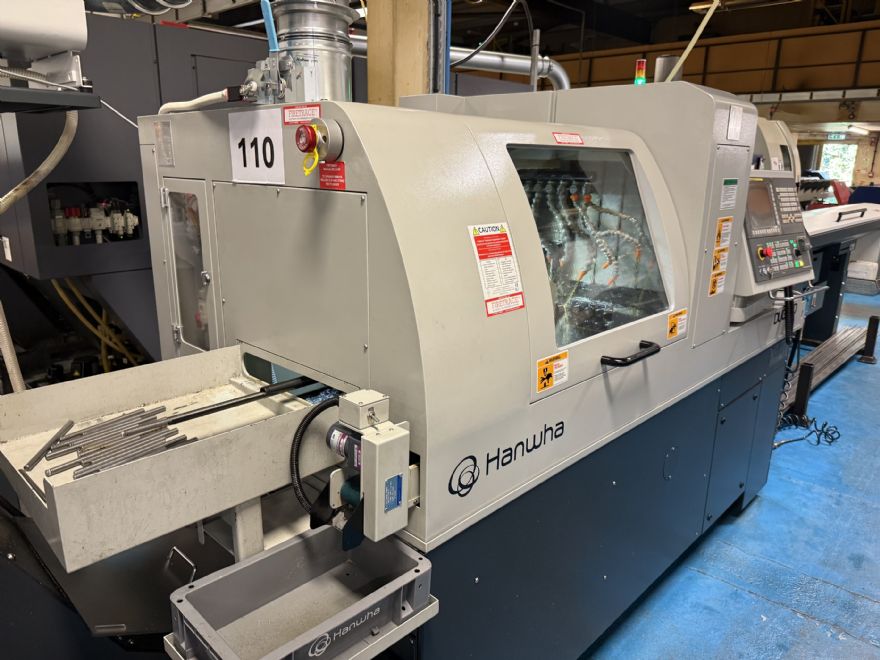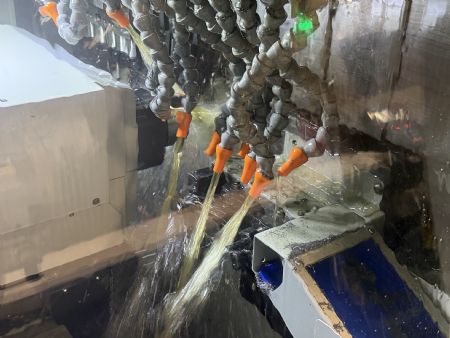
Worcestershire-based
Machined Component Systems plc (MCS) stands out as a centre of manufacturing excellence in the heart of the Midlands. Operating from a facility in Redditch, the sub-contract machining specialist has built a reputation over the years for delivering precision-engineered components to a wide variety of industrial sectors, including automotive, petrochemical, environmental, transport technologies, marine, healthcare technologies, and white goods.
MCS has been under the leadership of managing director Warren Gray for the past decade, and during that time, the company has transformed from a traditional engineering firm into an advanced manufacturing hub. This has been possible with investment in cutting-edge technology that includes three Hanwha sliding head turning centres supplied by East Sussex-based
Dugard.
Mr Gray, discussing the company’s investment strategy, said: “We are very proud of the people that we employ and the investment that we have made in new machine tools — it is what takes the company forward. In addition, we have just invested in new CAD/CAM software and four people are being trained to use that at the moment.”
His approach to automation demonstrates a deep understanding of manufacturing progression that has followed a journey from manual to automated operation. Mr Gray said: “Sliding head turning centres use bar feeds for automation anyway, but when you are making larger components on fixed head lathes, you may have started by opening and closing the door and actually having the billet in your hand with someone hand-feeding the machine. We have actually eradicated this manual task by investing in collaborative robots (cobots), industrial robots, and machine tools with their own pallet pool to increase automation further.”
At a crossroadsBy 2022, MCS was at a crossroads regarding its sliding head capability. Mr Gray explained: “We had had some very good sliding head machines from another manufacturer over a number of years, but those machines were beginning to age. We looked at three or four sliding head manufacturers, and we went to each of them with the same suite of parts, asked them to tender and provide a complete turnkey proposal for those parts, and Dugard came out on top.”

The selection process wasn’t simply about specifications or price comparisons. Mr Gray insisted on a comprehensive evaluation that would reveal real-world capabilities. He added: “Dugard invited us down to Brighton. I took my lead setter and a senior sliding head machine setter as well. We spent the whole day reviewing Dugard as a company, and also looking at the Hanwha machines in action, and on the back of the quotation Dugard put together, the machine tool supplier won our business.”
This hands-on approach reflects Mr Gray’s belief in involving his team in critical decisions. By bringing his engineers to Brighton, he ensured that the people who would work with these machines daily had input into the selection process.
What distinguished Dugard in Mr Gray’s evaluation was their complete approach to customer service and a level of support infrastructure that clearly resonated with his emphasis on reliability and long-term partnerships. The company now has three Hanwha machines, the XD20II-V NHY, the XD26II-V NHY and the XD38II-R NHY. The six-axis turning centres have a diameter capacity from 20 to 38mm with an ability to turn parts up to 545mm long.
The Hanwha sliding head range features a comprehensive line-up ranging from 3 to 42mm diameter capacity, powerful high-end CNC units, comprehensive tooling platens and configurations, and what stands out against competitor machines is the high-rigidity machine structure. This construction philosophy sees Hanwha make the machines 20 to 30% heavier than competitors’ machines of similar capacity.
Huge improvementsThis additional mass translates into performance benefits, with customers reporting huge improvements in heavy cutting capabilities, tool life, and reduced cycle times. The proof of any investment lies in its real-world performance, and Mr Gray’s assessment of the Hanwha implementation is unequivocally positive. He continued: “The Hanwha machines that have come into this business are excellent machine tools, and we are very happy.”
Mr Gray continued: “We serve a vast array of different industry sectors, and the Hanwha machines are ideal for them all, including automotive, environmental, medical and domestic gas. So, these machine tools could be making any industry components at any time.”
The phased implementation approach that Mr Gray adopted allowed MCS to validate performance, optimise integration, train personnel, and prove return on investment before committing to additional machines. This methodical approach reflects his broader management philosophy of making informed decisions based on evidence rather than speculation.